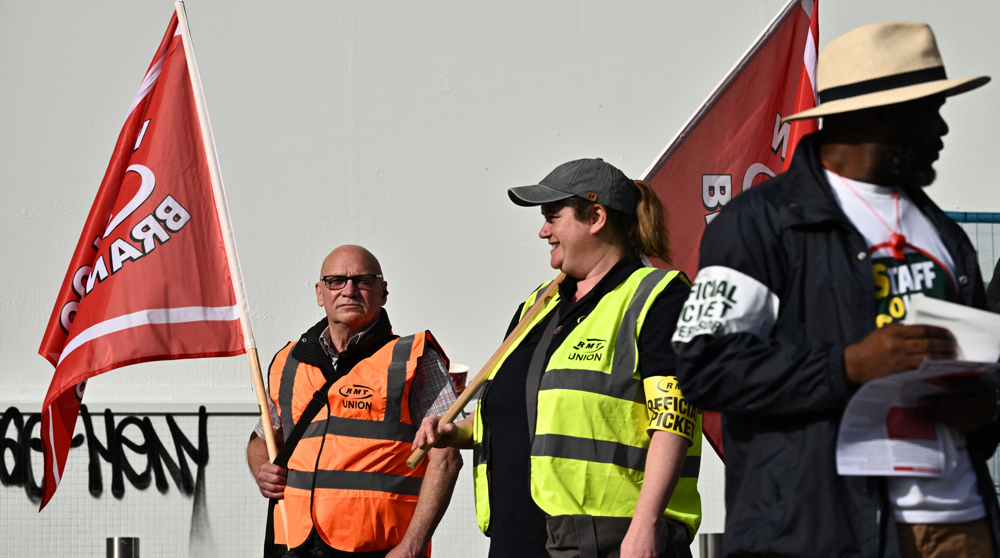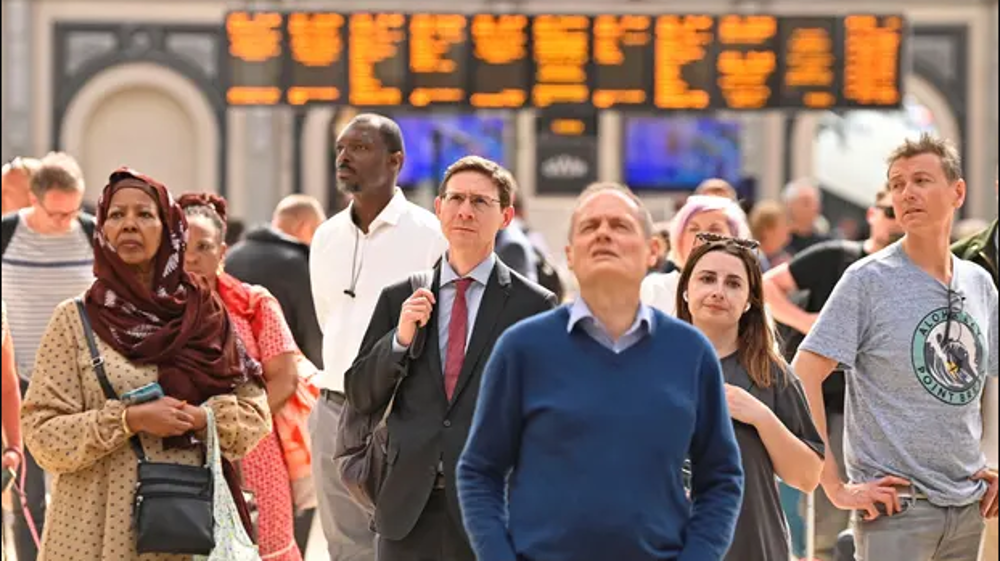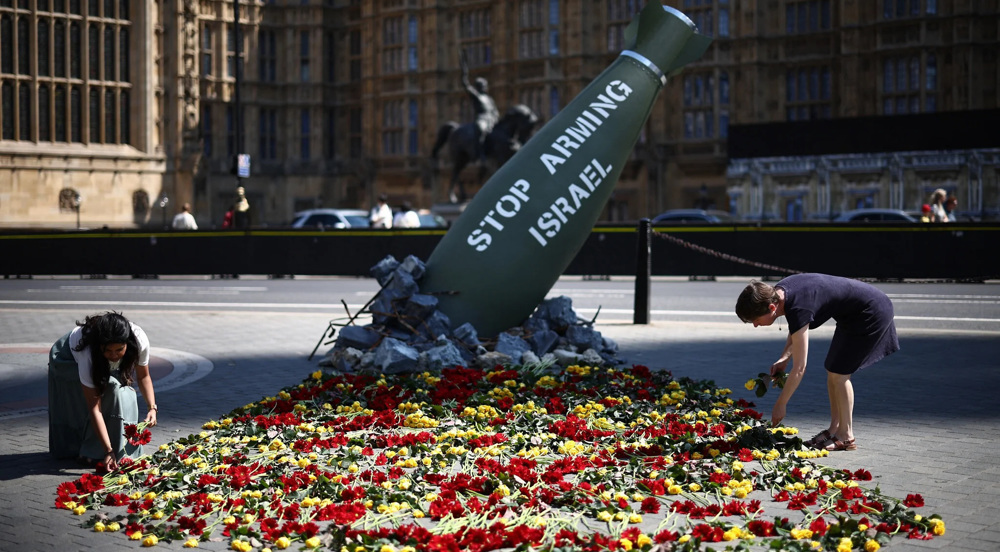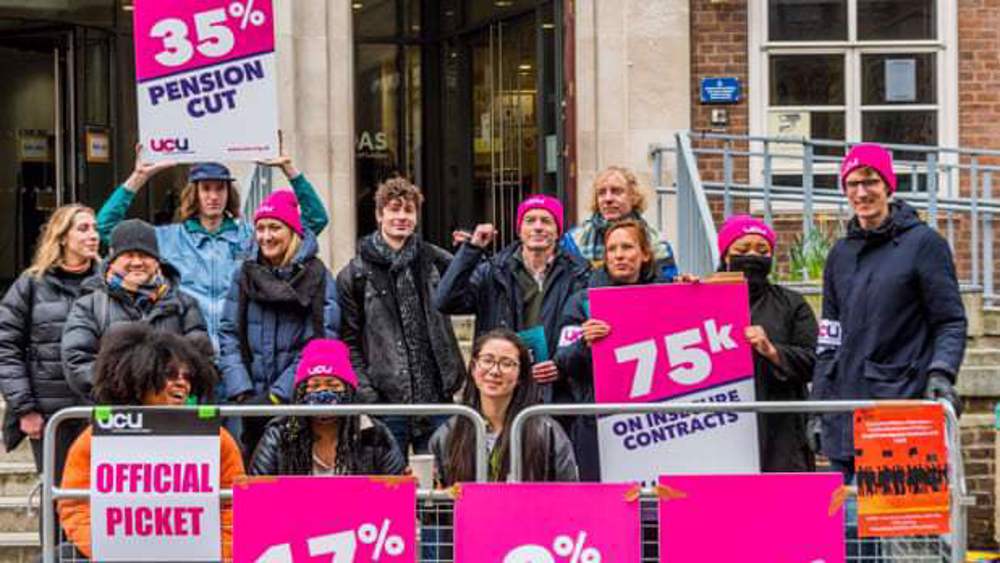UK rail strike: Union workers stage third walkout in week
Tens of thousands of British rail workers have staged their third walkout this week, bringing the country's railway system to a virtual standstill in the biggest strike in 30 years.
Some 40,000 union workers staged their third walkout of the week on Saturday in a dispute over pay and job security.
Rail firms repeated pleas for people to avoid traveling unless necessary.
The RMT rail union, which staged this week's action, said the strike was necessary as wages have failed to keep pace with Britain's inflation.
MT general secretary Mick Lynch said its members are "standing up for all working people trying to get a pay rise and some job security."
“In a modern economy, workers need to be properly rewarded for their work, enjoy good conditions and have the peace of mind that their job will not be taken away from them.”
Network Rail chief executive Andrew Haines, however, said that the decision “to carry out another day of needless and premature strike action means our passengers will suffer again on Saturday.”
"A fraction of trains will run compared to a usual Saturday service, with trains starting later in the morning and finishing much earlier in the evening."
Only around a fifth of services are set to operate on heavily reduced hours on Saturday.
Rail revenues remain about £2 billion short of pre-pandemic levels and the government has told Network Rail and train operating companies to find savings through “modernization” to fund pay deals.
The union has been offered a package worth 3% but inflation reached 9.1% – or 11.7% on the measure usually used to determine rail salaries – this week.
Unions and Labour have called on the government to join direct talks but the transport secretary, Grant Shapps, has insisted it is a matter for the employers.
The RMT general secretary, Lynch, said on Saturday that “there’s a long way to go yet” in the talks, which are due to continue in London.
Unions have to give two weeks’ notice of any new industrial action by law, meaning there will not be any strikes over the next 14 days.
The United Kingdom, with the inflation rate at a 40-year high of 9 percent in April, is struggling with a huge rise in the price of energy.
Economists say Britain is expected to have the highest inflation among the counties of the Group of Seven (G7) not just this year, but also in 2023 and 2024.
US lawmaker blasts attorney general for ‘lying under oath’ over handling of Epstein probe
Iran received no concrete US proposal in Oman talks: Security chief
Nouri al-Maliki defends Hashd al-Shaabi as inseparable part of Iraqi security system
British PM Keir Starmer faces calls to resign
Iran’s Kowsar satellite beams Islamic Revolution anniversary message across region
VIDEO | Press TV's news headlines
VIDEO | Indian regions celebrate Iran’s Islamic Revolution anniversary
Iran’s missile program will never be on negotiating table: Shamkhani













 This makes it easy to access the Press TV website
This makes it easy to access the Press TV website